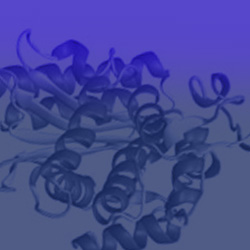Machine Learning Hits Molecular Simulations
 Machine learning (ML) is changing the way we approach molecular simulations. By translating ab-initio calculations into neural networks, it is possible to reach sizes and time scales not possible before and to analyze in detail the performance of the ab-initio approaches. ML can also lead to new force fields specially targeted to reproduce certain properties or to develop coarse grained models, opening new frontiers in numerical studies of collective molecular behavior. In addition, ML can be useful in analyzing trajectories and searching for efficient order parameters and reaction coordinates, in achieving enhanced sampling of rare events, and in discovering unexpected connections between structural and dynamic properties, including the evaluation of correlation and memory functions. This special issue will focus on applications of ML in molecular simulation with a particular focus on biomolecular and materials systems.
Machine learning (ML) is changing the way we approach molecular simulations. By translating ab-initio calculations into neural networks, it is possible to reach sizes and time scales not possible before and to analyze in detail the performance of the ab-initio approaches. ML can also lead to new force fields specially targeted to reproduce certain properties or to develop coarse grained models, opening new frontiers in numerical studies of collective molecular behavior. In addition, ML can be useful in analyzing trajectories and searching for efficient order parameters and reaction coordinates, in achieving enhanced sampling of rare events, and in discovering unexpected connections between structural and dynamic properties, including the evaluation of correlation and memory functions. This special issue will focus on applications of ML in molecular simulation with a particular focus on biomolecular and materials systems.
Topics covered include, but are not limited to:
- Representation of PES for different types of systems via neural networks or kernels
- Coarse graining
- Order parameters
- Descriptors
- Reactions coordinate
- Enhanced sampling
- Applications of ML potentials to condensed matter simulations
- Open tools for ML
- Active learning.
- Feature importance
Guest Editors
Laura Filion, Utrecht University
Frank Noe, Freie Universität Berlin
Christine Peter, University of Konstanz
Pratyush Tiwary, University of Maryland
Christoph Dellago, University of Vienna
JCP Editors
Carlos Vega, University Complutense of Madrid
Michele Ceriotti, EPFL Institute of Materials
Francesco Sciortino, Universita’ di Roma La Sapienza
John Straub, Boston University
More information:
Please note that papers will be published as normal when they are ready in a regular issue of the journal and will populate on a virtual collection page within a few days of publication. Inclusion in the collection will not cause delay in publication.
How to submit:
- Please submit through the online submission system.
- Under manuscript type → select Article or Communication, as appropriate
- Under manuscript information → Manuscript classification → select Special Topic: “Machine Learning Hits Molecular Simulations ”
